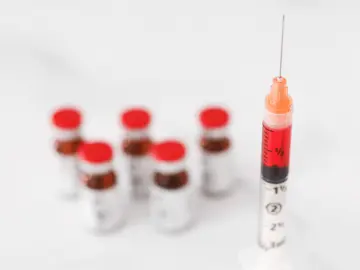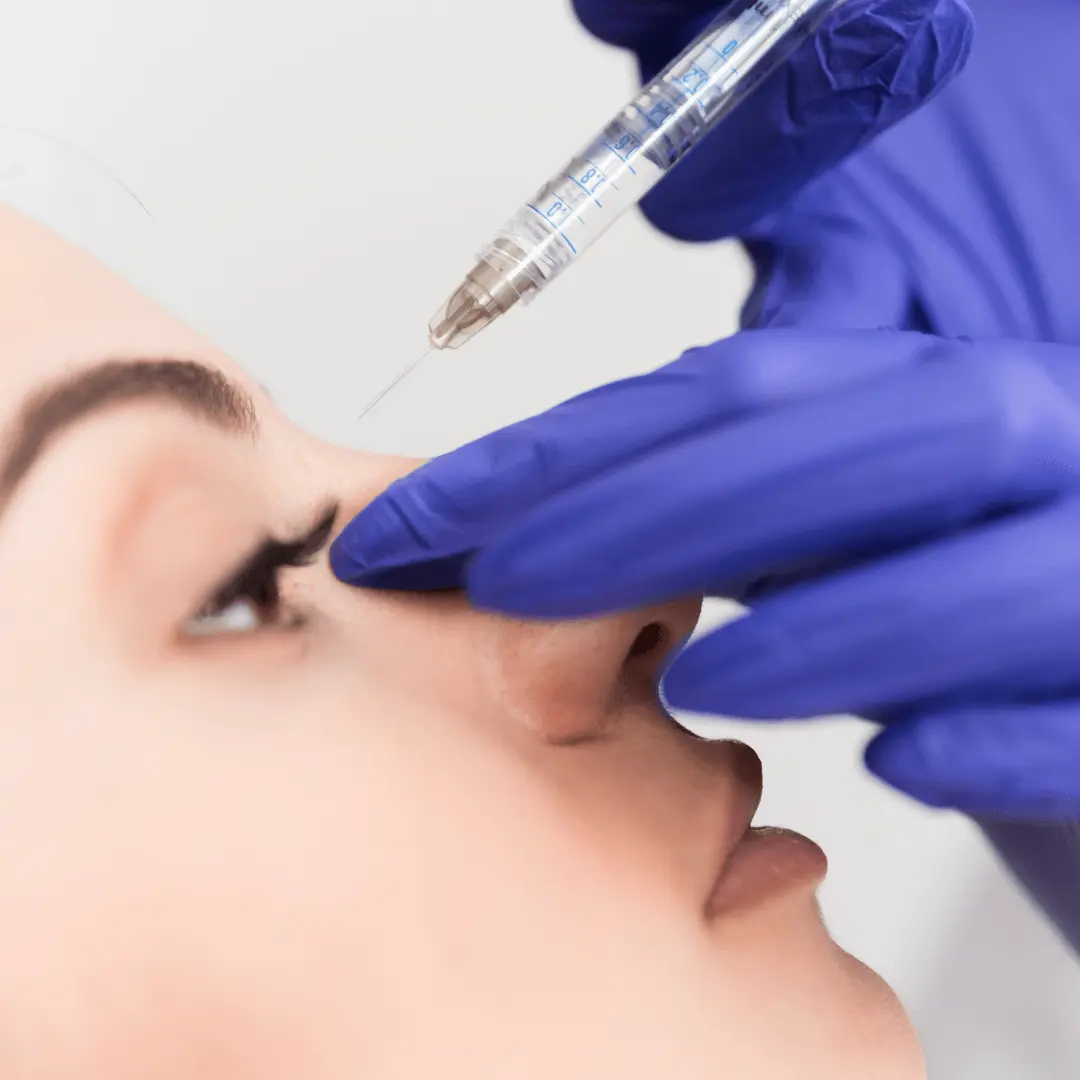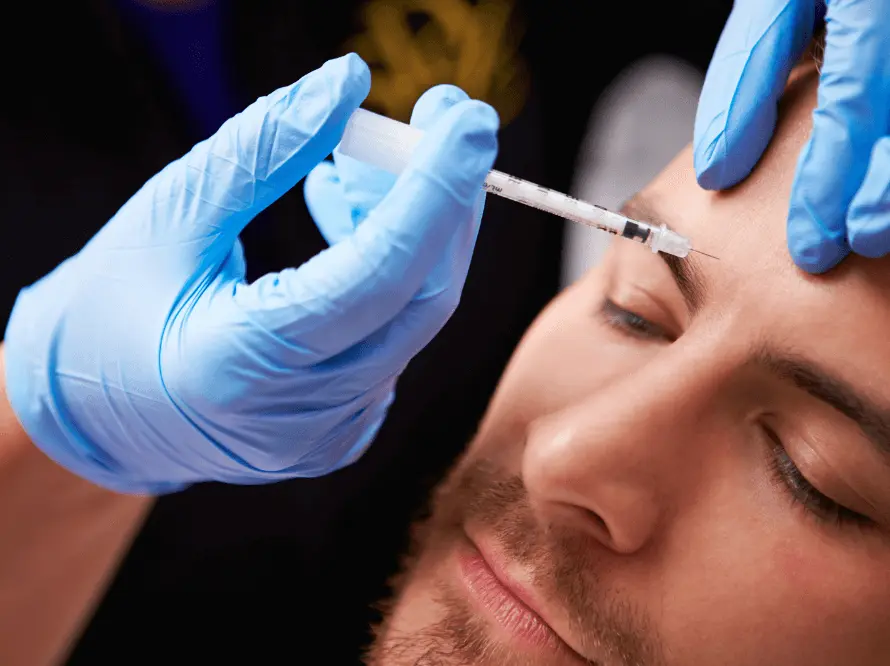Save Face investigates vitamin B12 booster injections, finding out why we need B12, vitamin deficiency, and the different types of B12 options available
Whether it’s intravenous (IV) vitamin drips, IV nutritional infusion cocktails, or vitamin shots, it seems that the trend for booster injections is a growth market in the UK, especially vitamin B12. With busy and hectic lives, you may well be feeling tired and rundown, looking for a pick-me-up, an immune system boost, or even the promise of weight loss and a more youthful spring in your step, but are vitamin B12 shots worth it, especially if you are not deficient in this vital vitamin? Save Face investigates…
We all know that vitamins are good for us and an essential nutrient for the proper functioning of a healthy body. Most of the vitamins we need cannot be synthesised or made within our bodies, so we get the majority from our diet and the foods we eat, some of which are fortified in the modern era, with extra vitamins added to products. Others may choose to take vitamin supplements in the form of daily multivitamin tablets. For some people, they simply cannot adequately absorb some of the vitamins they ingest, leading to diagnosed deficiencies that require targeted medication from healthcare services.
What is vitamin B?
Vitamin B is found in foods like meat, oily fish, eggs, leafy greens, yeast extract, cheese, and eggs and helps the body to make energy from the food you eat, and to form red blood cells.
Although the vitamin sounds like a single vitamin, there are in fact eight B vitamins that are more of less prevalent in different foodstuffs, and regularly added as fortification to breads and cereals, for example - thiamin (B1), riboflavin (B2), niacin (B3), pantothenic acid (B5), pyridoxine (B6), biotin (B7), folate/folacin or folic acid (B9) and cobalamins (B12).
What is vitamin B12 and why do we need it?
Vitamin B12 is almost exclusively found in animal-derived food stuffs – fish, meat, dairy, and eggs. It helps the body to make healthy red blood cells, maintain the nervous system, and release energy from food. A lack of vitamin B12 can lead to vitamin B12 deficiency anaemia which causes the body to produce abnormally large red blood cells that cannot function properly to carry oxygen around the body, leading to nerve damage or neuropathy.
How do I know if I have vitamin B12 deficiency?
It is uncommon to not get enough vitamin B12 from your diet but can be an issue especially if you do not eat animal products and follow a vegan or strict vegetarian diet without eating B12 fortified foods or taking a supplement.
The Food Standards Agency, biennial Food and You Survey of UK adults found that since 2012, the overall consumption of beef, lamb or pork has declined sharply, alongside a rise in ‘flexitarian’ eating - predominantly eating vegetarian or vegan food but occasionally eating meat and fish, with trends like Meat Free Mondays and Veganuary having reduced meat eating.
B12 deficiency can also be an issue if you have had weight loss surgery, have a very poor diet, or follow extreme or restrictive diets for a long time. Some medications can also affect vitamin B12 absorption in the gut.
There is also a condition called pernicious anaemia where your immune system prevents the cells in your stomach and gut from absorbing B12 from your food. This is a common cause of B12 deficiency in the UK and is usually diagnosed by your general practitioner.
Those with a diagnosed deficiency - usually through a symptom checker alongside a simple blood test - will be prescribed and offered regular vitamin B12 intramuscular injections through their GP practice, district nurse, or NHS services. These injections bypass the need for gut absorption and deliver the vitamin directly into the bloodstream.
Symptoms of a lack of vitamin B12 are tiredness, lack of energy, focus, and memory or cognitive function impairment – all common symptoms also associated with busy, stressful, and hectic lives.
This has led to a proliferation of private clinics and practitioners offering so-called ‘booster shots’ of B12 as a pick-me-up to help decrease fatigue, improve mood, motivation, and provide a feeling of being refreshed – even in those without a diagnosed deficiency, also targeting vegans and vegetarians as a cohort at risk of B12 deficiency.
Unlike many vitamins, the body can store B12 is substantial amounts in the liver until it is needed; these stores will usually last 2-4 years without needing to be replenished. Therefore, if you have recently changed your diet, become vegan, and stopped consuming B12-rich foods, it may take several years for a deficiency to become apparent, and dietary supplementation might be an adequate solution over any need for B12 injections.
Are all vitamin B12 injections the same?
Vitamin B12 comes in four different types – methylcobalamin, adenosylcobalamin, cyanocobalamin, and hydroxocobalamin.
Methylcobalamin and adenosylcobalamin both occur naturally in food and work together in our bodies to provide adequate vitamin B12 intake for bodily function. Methylcobalamin and adenosylcobalamin are also available as oral (tablet) and injectable nutritional supplements without a prescription. They must be combined in a treatment to be effective and get the best results for anyone with a B12 deficiency.
Because methylcobalamin is classed as a nutritional supplement and is not a licensed prescription only medicine in the UK, it is not available via the NHS and is being offered more and more by non-healthcare and non-prescribing practitioners as a treatment for wellness, fatigue, and to boost energy, without making any medical claims around deficiency, and is rarely combined with a supplement of adenosylcobalamin. In some cases, private clinics now sell self-injection kits of methylcobalamin for use at home, available after screening via medical questionnaire.
There are two types of prescription only vitamin B12 medicines that are listed in the British National Formulary (BNF) by NICE (National Institute for Health and Care Excellence) to be used for treating vitamin B12 deficiencies – hydroxocobalamin and cyanocobalamin.
As prescription only medicines, any promotion of them on social media, for example, falls foul of restrictions in relation to medicine regulations which prohibits the direct or in-direct promotion of a prescription only medicine to the public.
Cyanocobalamin is a synthetic or artificial form of B12 that the body converts to methylcobalamin and adenosylcobalamin ready for use. Dietary tablet supplements of vitamin B12 and fortified foods are usually in the form of cyanocobalamin because it is a more cost-effective form of B12.
Hydroxocobalamin can be naturally produced by gut bacteria when digesting food but is also another man-made form of B12 that can be easily absorbed and used by the body. It is usually recommended by health services, such as the NHS, as it stays in the body for longer. For example, if you have a deficiency and need regular B12 injections, hydroxocobalamin can be given once every 3 months, whereas cyanocobalamin would need to be given every month. It is for this reason that the latter is not routinely available on the NHS and hydroxocobalamin is the preferred treatment.
Private clinics, with prescribing services and/or appropriate diagnostic options will usually recommend the use of hydroxocobalamin for B12 injections, however, cyanocobalamin is popular as a cheaper option.
In England, the Care Quality Commission (CQC) regulates independent clinics and healthcare professionals such as doctors and nurses who provide treatments for disease, disorder, or injury. They note that the intravenous administration of vitamins or products that are prescription only medicine that are used to improve or enhance wellbeing constitutes treatment of a disease or disorder, and therefore healthcare professionals need to register with the CQC. They do not consider this type of procedure to be alternative or complementary medicine. The bigger issue remains that they cannot regulate the growing number of non-healthcare practitioners now flooding the market with B12 services.
Do you need vitamin B12 injections?
The general advice is to review your symptoms to establish if you may have an undiagnosed B12 deficiency. These include, extreme tiredness, a lack of energy, pins and needles, muscle weakness, disturbed vision, mouth ulcers, a sore and red tongue, and cognitive or psychological concerns such as depression, confusion, and difficulty with memory, understanding or judgement.
If you are experiencing such problems, in the first instance you should see your GP who will undertake a blood test, review your symptoms, and diagnose any deficiency, alongside any need for dietary changes, oral supplementation, or prescribed injections of vitamin B12. If necessary, you may be referred to another specialist within the NHS, such as a haematologist, gastroenterologist, or dietician. These services can be accessed free of charge in the UK.
Is getting a vitamin B12 booster shot worth it, even if I am not B12 deficient?
Vitamin B12 shots are openly advertised as a quick fix option to boost energy and metabolism, and in some cases claim to help you to shed weight. Unless you have a B12 deficiency, however, the additional injection is unlikely to give you an energy boost, and there is no evidence to suggest it can aid weight loss. If you are otherwise healthy and eat a well-balanced diet that includes foods rich in, or fortified with vitamin B12, it is unlikely that you need additional B12, either as vitamin tablets or injections.
B12 supplementation is generally regarded as safe and unlikely to cause harm to most people as there is no risk of overdose. When absorbed directly through the gut, as food or tablets, your body will only take on as much B12 as it needs, and the excess will pass through your urine. However, with direct injection, if you do not need the additional B12, it may result in high levels in your blood that can cause side effects including gastrointestinal issues, headache and dizziness, tiredness and weakness, or skin irritation until the excess is flushed out via your kidneys and urine. Excess B12 being excreted can cause a colour change to your urine, making it pink.
Any noticeable improvement in energy levels or your ‘get-up-and-go’, without an underlying deficiency, could simply be a placebo effect.
Some practitioners state that you do not need a blood test prior to starting on a programme of vitamin B12 injections – stating that symptoms of feeling run down are enough – and with the lack of overdose risk, you have nothing to lose! You should start to see improvements within a few days to a week, however if you do not feel the effects after 2-3 injection sessions, then it is likely that you were and are not deficient in B12. However, by this point, you will be deficient in the money you have spent on needless injections, so Save Face recommend a full check-up with either your NHS GP or a private doctor, who can confirm your symptoms and any genuine deficiency with a blood test, and more importantly can prescribe the best type of B12 product and treatment programme to suit your needs.












